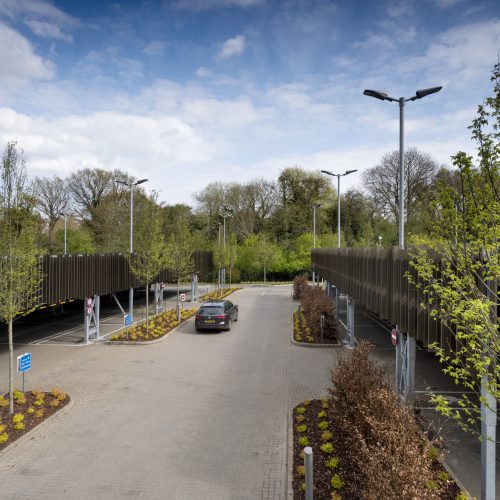Planning consent has always been a potential obstacle to car park development. In the case of public car parking it’s highly unlikely that permitted development rights would apply – so you’ll have to be prepared to jump through all the planning hoops to get your project approved.
So what can be done to streamline the process and deal with potential objections before they happen?
Circumstances where you might not need planning consent include a car park that will be used for less than 28 days – perhaps to meet a temporary need during construction works. We’ll talk a bit more about this later.
Whether you need planning consent or not, there’ll be specific building regulations to contend with. These regulations were updated in 2023 to improve sustainability and environmental performance.
Two Ways To Streamline Planning Approval For Your Car Park
If you need new or expanded car parking provision, here are two broad strategies to improve your chances of success and make the planning consent process less of an ordeal.
The first part of the strategy is to know the planning constraints and building regulations affecting car parks inside out. This will stop you wasting time on a design concept that will never be approved.
Maybe you don’t have the time, technical background or patience to achieve this – your selection of development partner is a critical decision if you want to avoid delays.
The next thing to look at is the proposed building method or system. How many planning consent and building regulations boxes – particularly sustainability ones – are automatically ticked by the method and materials being deployed? There’s no point making life harder than it needs to be.
Flexibility Wins
In this respect, the flexible modular car parking system developed by Octavius and Siderpark has many plusses. The lightweight steel structure is both reusable and fully recyclable and usually there’s no need to dig foundations.
The system is designed to make EV charging points easy to install and can be clad with a wide range of finishes to blend with the local environment. Because it’s easy to erect and dismantle, it’s also ideal for the sort of temporary use that could fall outside of planning constraints.
Finally, we offer a full design-to-commissioning service that includes dealing with all the compliance issues of planning and building regulations consent.
For more information contact hello@octavius.co.uk .


